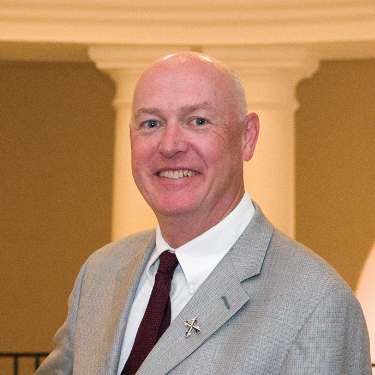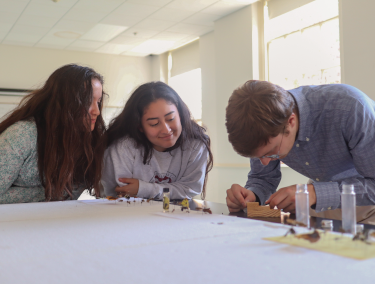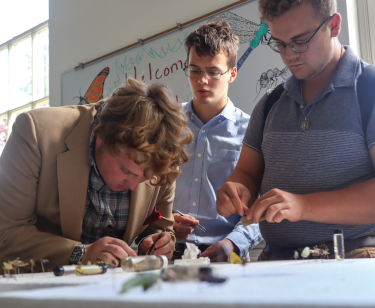- Home
-
About
 Fidelity & Excellence
Fidelity & ExcellenceThomas Aquinas College is unique among American colleges and universities, offering a faithfully Catholic education comprised entirely of the Great Books and classroom discussions.
-
A Liberating Education
 Truth Matters
Truth MattersTruth, and nothing less, sets men free; and because truth is both natural and supernatural, the College’s curriculum aims at both natural and divine wisdom.
-
A Catholic Life
 Under the Light of Faith
Under the Light of FaithThe intellectual tradition and moral teachings of the Catholic Church infuse the whole life of Thomas Aquinas College, illuminating the curriculum and the community alike.
-
Admission & Aid
 Is TAC Right for You?
Is TAC Right for You?Do you enjoy grappling with complex questions? Are you willing to engage in discussions about difficult concepts, with the truth as your ultimate goal?
-
Students & Parents
 Mind, Body & Spirit
Mind, Body & SpiritThere is always something to do at TAC — something worthwhile, something fulfilling, and something geared toward ever-greater spiritual and intellectual growth.
-
Alumni & Careers
 What Can You Do with a Liberal Education?
What Can You Do with a Liberal Education?Nothing speaks more to the versatility of the College’s academic program than the good that our alumni are doing throughout the Church and the world.
- Search
- Giving
Dr. Glen Coughlin: “The Starting Point for Reflection on Virtue and the Good Life”
A member of the New England teaching faculty, Dr. Glen Coughlin presented the above talk to the Thomas Aquinas College Board of Governors at its fall 2022 meeting.
 I thought that it would be a good idea to discuss why Thomas Aquinas College, in contrast to every other Catholic liberal arts college, spends so much time studying natural philosophy and natural science. We spend four full years in our Natural Science courses studying nature. In the first year, we study natural history and the principles of biology; in the second year, the development of the periodic table and of the atomic theory; in the third, Galilean and Newtonian classical mechanics; and in Senior Year we study electromagnetism in the first semester and the modern evolutionary synthesis in the second.
I thought that it would be a good idea to discuss why Thomas Aquinas College, in contrast to every other Catholic liberal arts college, spends so much time studying natural philosophy and natural science. We spend four full years in our Natural Science courses studying nature. In the first year, we study natural history and the principles of biology; in the second year, the development of the periodic table and of the atomic theory; in the third, Galilean and Newtonian classical mechanics; and in Senior Year we study electromagnetism in the first semester and the modern evolutionary synthesis in the second.
Besides these courses, much of our mathematics curriculum could be characterized as natural science: In the Sophomore Year, we study astronomy, starting from Ptolemy and finishing with Kepler, and in the Senior Year, we study Einstein’s theory of relativity. In addition to working through the original texts in these Natural Science courses, we read almost all of Aristotle’s Physics, all of his De Anima, and selections from several others works in natural philosophy. Why all the emphasis on nature? One might think we should do as they do at many other Catholic liberal arts colleges — read more theology, history, literature and so on.
What made me reflect on this was the discussion we had at the last Board of Governors meeting. The issue of “wokeism” came up, and there was some question about how we were preparing our students to confront this destructive philosophy. On reflection, I think our entire emphasis on nature is the answer.
There are many errors in the worldview of the “woke,” but the deepest is the belief that one can simply replace nature with art; that gender, for example, is a “construct,” subject therefore to our whim. Marriage is what we make of it, and self-identification trumps reality. This is an extension of what we see in some areas of modern medicine, where the natural biological processes of reproduction are simply bypassed and replaced with artificial techniques largely separated from natural reproductive functions (though the natural processes can never be completely removed).
“To offend against nature, especially human nature, is to offend against God; to respect that nature and cause it to flourish is to promote the divine plan.”
The belief that technology can substitute for nature is a widespread one, one which Charles De Koninck, who taught many of our founders at Université Laval in Quebec City, was much concerned with refuting. Of course, I don’t claim that the founders had in mind “wokeism” as a particular political movement, but they knew from their wide reading that the desire to master and even to replace nature was a significant theme in modern philosophy, going back at least to Pico della Mirandola (1463–94) and Descartes (1596–1650).
In essence, the attempt to supersede nature is an attempt to be as gods, knowing good and evil. As our first parents ate of the tree of knowledge in the hope of a freedom of license, so we all in our own lives go astray by seeking independence from God and nature. In particular, we seek to make our own choices the principle of good and evil, replacing the criteria of goodness inherent in our natures and in nature as a whole with our own desires.
Sin is always unnatural in some way. Lying is opposed to the natural function of speech, which is to let people know what we are thinking; theft is opposed to man’s nature as one who, being rational, provides for himself and others, insofar as private property is a necessary tool for such provisioning; adultery is opposed to man’s nature as political and social, insofar as it makes impossible peaceful family structure and the unimpeded education of children; and so on. Because of what we are, certain things are good for us to do and to have, and others are not. Just as the nature of a horse determines what sorts of things cause it to flourish, so does the nature of a human being determine what should be sought and what avoided.
 Not only does nature mark off the limits of good and evil, in doing so it also specifies the direction of grace. What I mean is that grace, as a gift of God intended to perfect us and make us happy, must be a perfection of our nature, not something merely attached to us accidentally, like what kind of car we have. Grace makes us more perfect as human beings, as rational animals; it is not something which utterly changes our nature. If it did, why would we want it? It would then not be we who are saved, but some other sort of thing having only a historical relation to ourselves. While we can never put a limit on how much grace a person can have and so how close to God a person can be, we can say that grace can only perfect someone if it perfects him as a person — this is why I spoke of the “direction” of grace rather than its goal. In short, grace builds on nature.
Not only does nature mark off the limits of good and evil, in doing so it also specifies the direction of grace. What I mean is that grace, as a gift of God intended to perfect us and make us happy, must be a perfection of our nature, not something merely attached to us accidentally, like what kind of car we have. Grace makes us more perfect as human beings, as rational animals; it is not something which utterly changes our nature. If it did, why would we want it? It would then not be we who are saved, but some other sort of thing having only a historical relation to ourselves. While we can never put a limit on how much grace a person can have and so how close to God a person can be, we can say that grace can only perfect someone if it perfects him as a person — this is why I spoke of the “direction” of grace rather than its goal. In short, grace builds on nature.
The most basic reason that the study of nature has such large implications is that nature is, as St. Thomas puts it, “the divine art impressed upon things.” To offend against nature, especially human nature, is to offend against God; to respect that nature and cause it to flourish is to promote the divine plan.
The consideration of nature, then, is central to any consideration of ethics, politics, or revealed theology. While this is always true, it is particularly important that we who live in the shadows of modernity take it into account.
In a more innocent age, it may have been possible to ground our understanding of good and evil on a basic common-sense understanding of the natural, but now we have, in the form of “wokeism,” biotechnology, corporate manipulation of choices, etc., attacks on just that common sense. These attacks make it necessary to be more conscious of the reasons that undergird that common sense, because those who reject common sense and those who are listening from the sidelines have either deliberately or through bad intellectual training come to doubt what common sense teaches. We need to show that that common sense is well founded, that it is not just a cultural prejudice. And in order to do that, we need to go beyond the cultural to the natural, that is, we need to study nature itself.
These attacks on nature come from various quarters, but we can pretty easily divide them into philosophical attacks and scientific attacks. The latter are, in reality, also philosophical: Those who interpret scientific discoveries in certain ways use it to bolster their claims about the mutability or unreality of nature. But it is their interpretations that cause the problems, not the science itself. They will say, for example, that the atomic theory shows that man is not really one thing, but just a “bundle of events,” to quote Bertrand Russell, and conclude that we need not worry about good or evil as understood through common sense because the thing for which those things are good or evil does not really have a nature — it is only a peculiar collection of elementary particles. How should we respond to such an attack? We have to study the theory of atomism and its moral implications closely, reflecting on how it both helps us understand human nature and yet leaves untouched our basic understanding of humanity.
 The most overt philosophical attacks probably come from Nietzsche and Marx, two philosophers who have had a huge impact on contemporary thought. Despite very different philosophies, both imply that man is simply not able to know things, that, in fact, people hold the positions they do due to economic factors (Marx) or due to the mere will to control others (Nietzsche). They reduce truth to power, either individual or societal — we never think what we think because it is true, but only because it advances our position or that of the people who control society. But what is the reason they reject the ability to come to objective truth? Here again a careful study of their assumptions is needed, a study which would have to focus on the natures of sensation and thought.
The most overt philosophical attacks probably come from Nietzsche and Marx, two philosophers who have had a huge impact on contemporary thought. Despite very different philosophies, both imply that man is simply not able to know things, that, in fact, people hold the positions they do due to economic factors (Marx) or due to the mere will to control others (Nietzsche). They reduce truth to power, either individual or societal — we never think what we think because it is true, but only because it advances our position or that of the people who control society. But what is the reason they reject the ability to come to objective truth? Here again a careful study of their assumptions is needed, a study which would have to focus on the natures of sensation and thought.
To return to the issue of “wokeism,” then: We study nature in a large part of our program because nature is the starting point for reflection on virtue and the good life. Recognizing this, the founders saw the need to include in our program a generous consideration of Natural Philosophy and Natural Science. Their foresight was not that of a prophet, it was that of a wise man who sees the necessary order of studies, the path to wisdom.
While there are also other reasons to study nature, certainly among the most pressing is the need to prepare our students to face the modern world.

